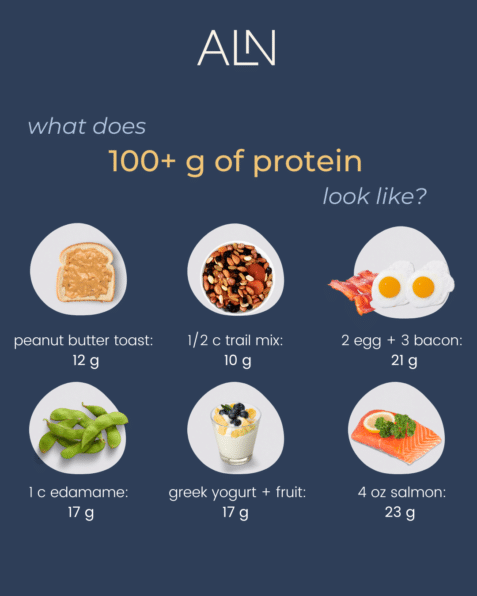Rise by Six: Your Daily Dose of Inspiration
Explore insights and stories that elevate your day.
Protein Perks: Why Your Plate Deserves a Boost
Unlock the secret benefits of protein! Discover tasty ways to supercharge your meals and boost your health today!
The Ultimate Guide to Protein: Benefits and Sources for Every Diet
Protein is an essential macronutrient that plays a critical role in our bodies, serving as the building block for bones, muscles, skin, and blood. It is crucial for muscle growth, tissue repair, and the production of enzymes and hormones. One of the key benefits of protein is its ability to enhance satiety, making it easier to manage weight by reducing hunger and cravings. Additionally, a high-protein diet can support metabolic health and improve body composition by promoting muscle mass over fat mass. Whether you're an athlete, a fitness enthusiast, or someone looking to improve overall health, understanding the sources and benefits of protein is vital.
There are numerous sources of protein available, catering to different dietary preferences. For individuals who consume animal products, options include lean meats such as chicken and turkey, fish, dairy products like yogurt and cheese, and eggs. On the other hand, for those adhering to vegetarian or vegan diets, plant-based sources include legumes (beans and lentils), nuts and seeds, tofu, quinoa, and tempeh. Each source offers a unique protein profile, so diversifying your intake can help ensure you receive a complete range of amino acids. Incorporating a variety of protein-rich foods not only supports your dietary needs but also contributes to a balanced and nutritious diet.

How Much Protein Do You Really Need? Debunking Common Myths
When it comes to protein intake, many individuals are influenced by popular myths that lead to misconceptions about how much they actually need. One common belief is that everyone requires the same amount of protein regardless of their age, activity level, or health goals. In reality, protein needs can vary significantly; for example, the average sedentary adult requires about 0.8 grams of protein per kilogram of body weight, while athletes or those engaging in heavy resistance training may need upwards of 1.2 to 2.0 grams per kilogram. It’s essential to understand that these values can fluctuate based on various factors, including physical activity and overall diet.
Another widespread myth is that consuming high amounts of protein can lead to kidney damage. For healthy individuals, this concern is largely unfounded. Research shows that while individuals with pre-existing kidney conditions may need to monitor their protein intake, healthy individuals typically do not experience adverse effects from higher protein consumption. In fact, protein plays a crucial role in muscle repair, metabolic health, and even weight management. Therefore, knowing the right amount of protein tailored to your personal needs is key in optimizing health and fitness.
10 Delicious Ways to Boost Your Protein Intake at Every Meal
Incorporating more protein into your diet is essential for muscle growth and overall health. Here are 10 delicious ways to boost your protein intake at every meal. Start your day with a protein-packed breakfast by adding Greek yogurt to your morning smoothie or opting for scrambled eggs with spinach and feta. For lunch, consider a quinoa salad topped with grilled chicken, beans, or tofu. These nutritious additions not only enhance flavor but also significantly increase your protein levels.
For dinner, try a hearty stir-fry with lean beef or tempeh combined with a variety of colorful vegetables. Snacking doesn’t have to compromise your protein goals either; consider munching on roasted chickpeas or a handful of almonds. Remember, boosting your protein intake can be simple and enjoyable. You can even indulge in a protein-rich dessert like a chocolate protein mug cake. With these delicious strategies, reaching your protein targets every day can be both fun and tasty!